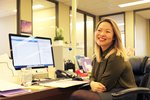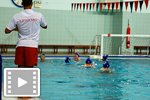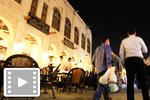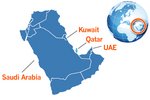American School of Doha
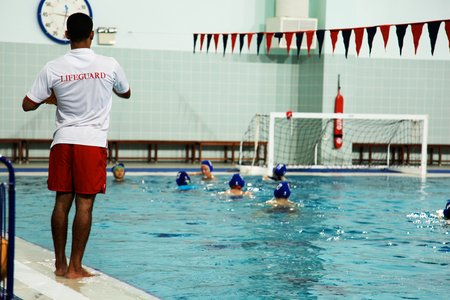 If you are a parent who is considering a job overseas, and your contract will allow you to bring your family, one of your main concerns will be finding a school for your children. In November 2011, we had the opportunity to meet with staff and students of the American School of Doha. Among those generous enough to share their time and energy with us were Phillip Stroup, Director of Development and External Relations, Scott Barnwell, Director of Admissions, and Jan Goulden, PTA President. From its humble beginnings in an old villa in 1988, ASD has grown to a bright, airy, and welcoming multi-building campus educating approximately 2,000 children from Pre-K to grade 12. We'd like to let you know some of the things we learned during our visit, and to give you a feel for what this lively academic environment can offer your children. Students To help new students find their feet, ASD pairs up newcomers with experienced buddies who can show them the ropes. Although 60% ASD's nearly 2,000 students are from the United States and Canada, students hail from 79 different countries, and their flags are proudly displayed in the upper school's cafeteria. We were told that about 10% of students are Qatari citizens. Student involvement within ASD is encouraged, with the senior students helping to tutor the junior students. For graduation, students are required to fulfill a minimum 40 hours of community service (they typically do more), volunteering and raising money for projects in developing countries. Since the majority of students are the children of expatriate contract employees in Qatar, the average stay at the school is from three to five years. ASD graduates have earned spots in the top universities in the United States and Canada. When asked what types of students do not do well, the consensus was: those who do not value education, those who do not want to work, and those who are not there for the right reasons. ASD has students with mild learning or behavioral issues, but lacks services for students with significant needs, so cannot accept these children. By the Numbers Pre-K and K classes have a maximum of 15 students; grades one to two have a maximum of 20 students; and grades three to 12 have a maximum of 22 students. Teachers The Qatari government requires that teachers be certified. It is possible for a school to hire non-certified teachers, but the teachers have a limited window of time in which they must complete courses onsite to become locally certified. The majority of ASD's staff members hail from the United States and Canada, but there are also teachers from the UK, Australia, Latin America, and the Middle East. Having spent many years in school -- and being a certified teacher -- I can tell you that the enthusiasm I encountered among the teachers was refreshing - not to mention infectious! Parents Academic and Other Programs and Services ASD offers a wide range of programs, facilities, and services for your children, of which a sampling includes:
Admissions ASD's website provides the full details of the admissions process, but in brief, an application involves submission (in English) of an application and fee, health questionnaires/forms, school records, recommendations, photos, and passport/birth certificate copies to the Office of Admissions. Once the full file is in, the committee takes about an hour to give an answer about eligibility for admission. Accreditation ASD is accredited by the New England Association of Schools and Colleges. Fees At ASD, fees include an initial application and registration fee, as well as annual capital fees and tuition fees. Tuition and fees are subject to change each year. To see current costs, visit the Tuition and Fees page. Some Considerations When Looking at Options for Schools Overseas:
Watch the Video of the American School of Doha Most Popular |
Related |
Copyright (C) 2025 Helen Ziegler and Associates. All rights reserved.



